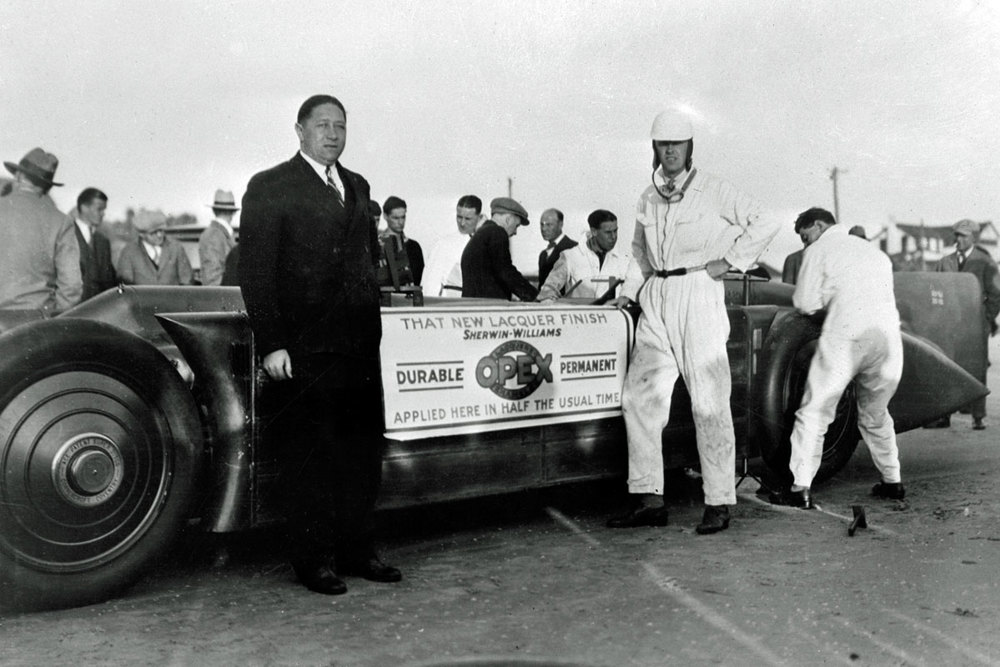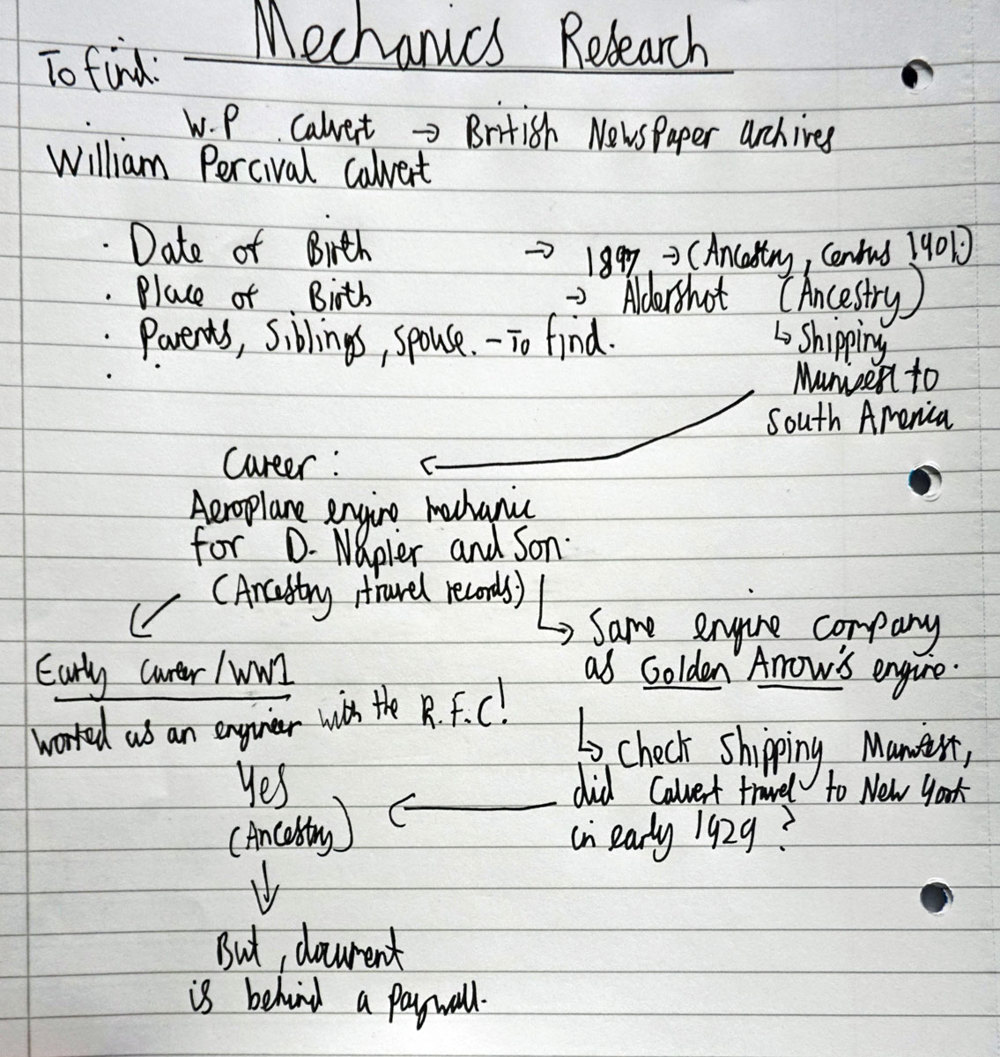
The Process of Discovery: Research Methods
04 May 2021
Welcome to the latest blog from the Golden Arrow research project brought to you by students from Bournemouth University.
The research group are extremely proud to announce that we have succeeded in our goal to identify the mechanics who maintained Golden Arrow. This blog has links to three podcasts which discuss how we researched the mechanics and we provide advice for those wishing to conduct their own research. The podcasts are divided as follows and conversations have been paraphrased for those without access to audio.
- Our routes of research
- Advice for those interested in research.
- How to navigate online databases such as Ancestry and the British Newspaper Archive.
Podcast 1: Our Routes of Research
This podcast describes how we organised our research and what led to our findings on the mechanics.
Research Methods
Fraser: “Jo, you were looking for a mechanic named Baguley, how did you begin your research?”
Jo: “First I did a general search online before turning to specialist websites such as Grace’s Guide which provided some key information about Baguley. This then informed how I used more specific databases such as Ancestry. Also, collecting relevant dates are a key factor in research, as it helps distinguish different people with the same name.”
Fraser: “Absolutely, it’s extremely useful that databases such as Ancestry and the British Newspaper archives allow one to select a precise date, this helped lead to our first major discovery, with Harry finding the names of one mechanic and initials of another: a Harold Irving and W.P Calvert.”
“I then searched for a W.P Calvert on Ancestry, who was identified on a shipping manifest as William Percival Calvert, a Napier engineer. This discovery showed me that information doesn’t always appear in documents that you expect.”

From Dead Ends to Discoveries
Fraser: “Whilst this was a success, research can sometimes hit a dead end. Did this happen to you Jo?”
Jo: “Yes, sometimes information would appear promising and then later reveal itself to be unrelated to our mechanic, or paywalls would block research, despite us already paying for access on databases such as Ancestry.”
Fraser: “I share your frustration on paywalls, after my shipping manifest discovery for Calvert, I wanted to see if there was a similar document for the other mechanics, but I had to upgrade our Ancestry membership so we could access American documents. These revealed the names, ages, professions, and places of residence for our mechanics.”
Podcast 2: Our Advice for Those Conducting Research
This podcast provides advice for those wishing to conduct their own research.
Fraser: “Jo, what advice can you give to those conducting their own research?
Jo: “The most important thing is to start with looking for basic information before using the more specialist databases. Without the correct biographical information, it is easy to confuse one individual with another.”
Fraser: “I agree, and a broad search is really important. For those who haven’t found anything on their broad search, it may be worth exploring any events which the individual was associated with. In our case, the mechanics were part of Golden Arrow’s trip to Daytona, and therefore shipping manifests were very useful.”

Podcast 3: How to Navigate Online Databases: Ancestry and the British Newspaper Archives
This podcast provides advice on how to make the most of digital archives.
The British Newspaper Archives
Jo: “Fraser, I know you used the British Newspaper Archive, what advice would you give to those using it?”
Fraser: “The most useful element of the British Newspaper archive is the ability to filter your results through year, region, and newspaper. This is an extremely powerful tool for finding specific information.”
Ancestry
Fraser: “Jo, how did you find Ancestry, and what advice do you have for those wanting to use it?”
Jo: “One mistake I made was being too broad with my searches, typing ‘William Baguley’ and ‘1892’ and ended up with loads of results. Breaking it down by the name of their relatives helped.”
Fraser: “I agree, Ancestry is powerful as you can isolate searches within specific categories. Therefore my second search for shipping manifests was easier by searching through travel records rather than the entire database.”
Concluding Remarks
We hope you enjoyed listening to us discuss our research, if you have any questions, please feel free to get in touch through the comments below and don’t forget to follow us on twitter @UncoveredArrow

Subscribe for updates
Get our latest news and events straight to your inbox.